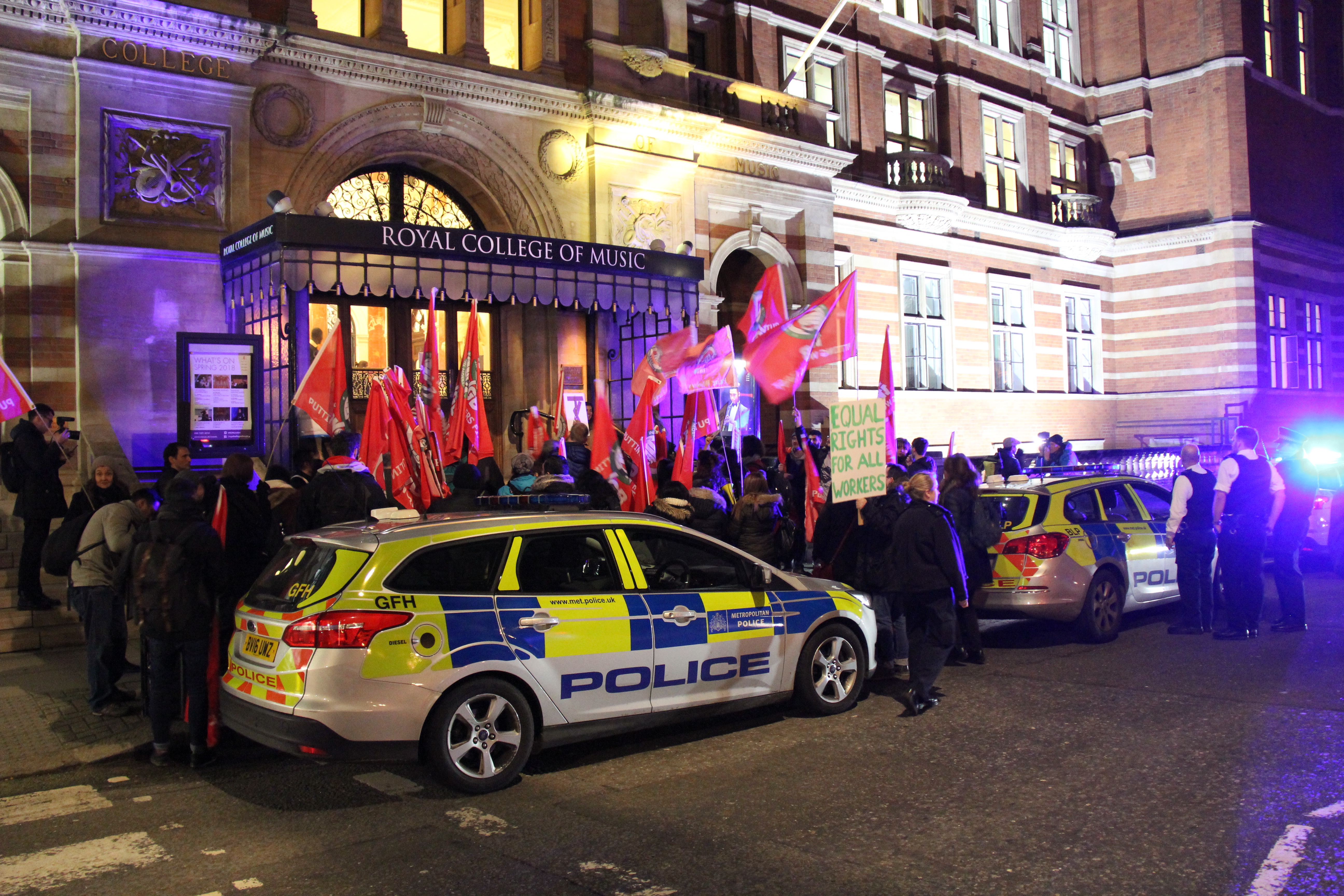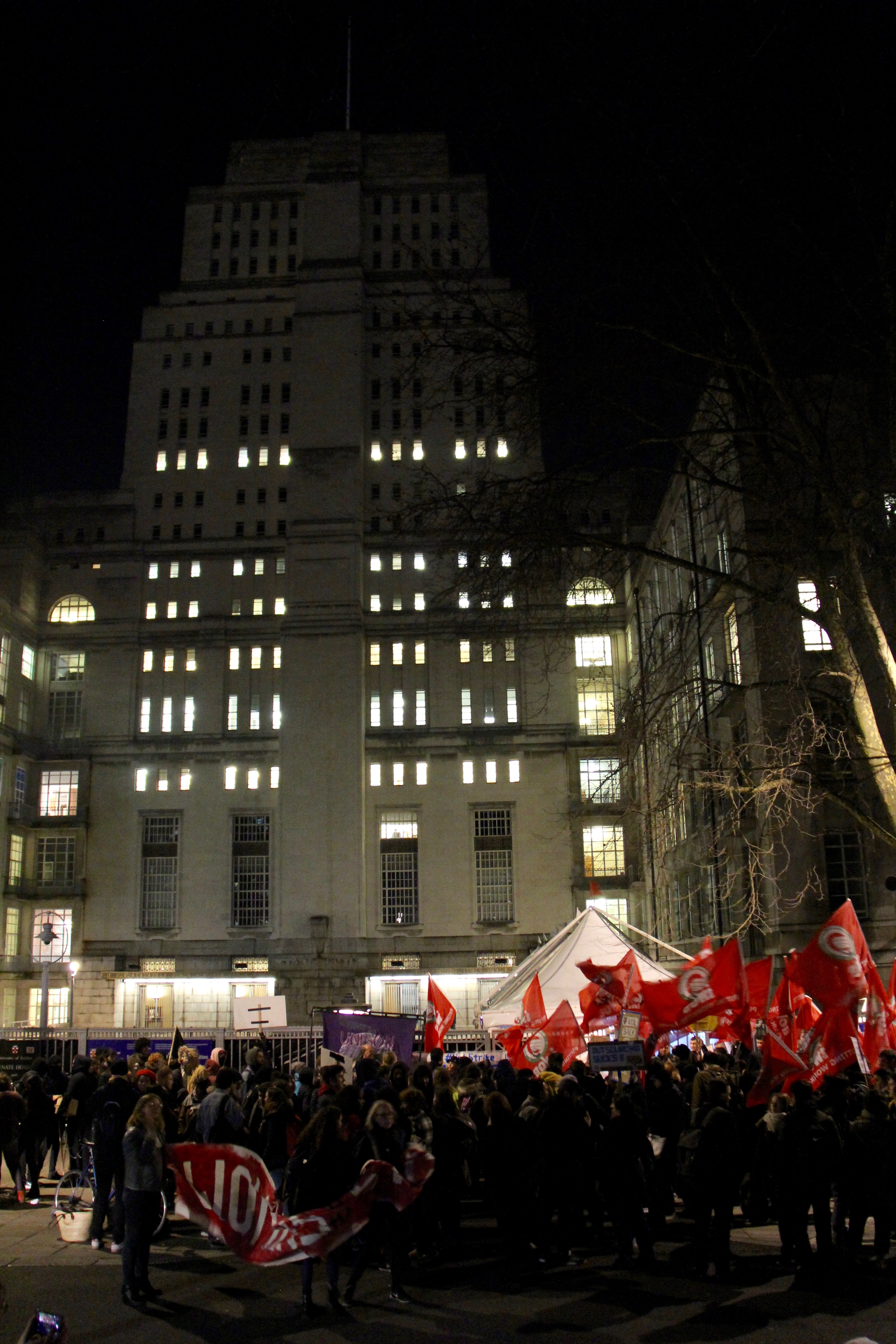The unheard stories of precarious work
Why college cleaners are striking, in their own words
09 February 2018
On Thursday 25th January, demonstrators stormed the Royal College of Music in protest against the sacking of several night cleaners by the cleaning firm Tenon FM. The cleaners are currently on strike and serving out their notice periods after rejecting a new contract which would have effectively cut their hours in half, hampering their ability to support their families.

Every night, thousands of cleaners across the city go to work. This largely invisible army keeps the city moving, but often works long hours in precarious conditions, and for little pay. Essential to the fabric of our city, their voices are absent from public discourse, and their stories seldom heard.
Video in Spanish. Click closed captions button for subtitles while viewing.
“I arrived in London, well, you know about the work situation in Spain, don’t you? Things got really tough over there. I have family in London, a cousin. So when he found I was having a really hard time, he told me to come,” Christobel, a night cleaner, told me.
Things were going well for him when he first arrived. “I had a good start. I got a job at the Royal College of Music – as a replacement cleaner, like we all do! With time, I was lucky to win the supervisor’s trust. So fortunately I became a permanent employee. And when she left, she made me the new supervisor.”
The problems started when the Brexit vote triggered a massive fall in the value of the pound. Wages from a 50 hour week were no longer enough to support his family back in Ecuador. So 50 hours a week became 70. Things only got worse when his mother developed diabetes.
“We’re having a tough time at the moment,” he says. “So my job is really important — that’s why we’re fighting. I can help my mother to have a better quality of life. I know I can’t stop her illness but I can help her a lot.”

Forced to take on jobs across two different institutions, Christobel works 10 hours a day, seven days a week. When Tenon FM announced new contracts, changes to their shift patterns meant cleaners were unable to hold multiple positions – their hours were effectively cut in half. With no say in the decision-making process, the cleaners were forced to reject the new contracts and lost their jobs.
Christobel’s voice is just one of many migrant workers’, lost in the world of precarious work. We need trade unions willing to stand up for their members, because only a critical mass of voices will be loud enough to be heard. At NEF we are bringing together unions which are working with the most vulnerable precarious workers to improve their conditions.
Topics Work & pay






